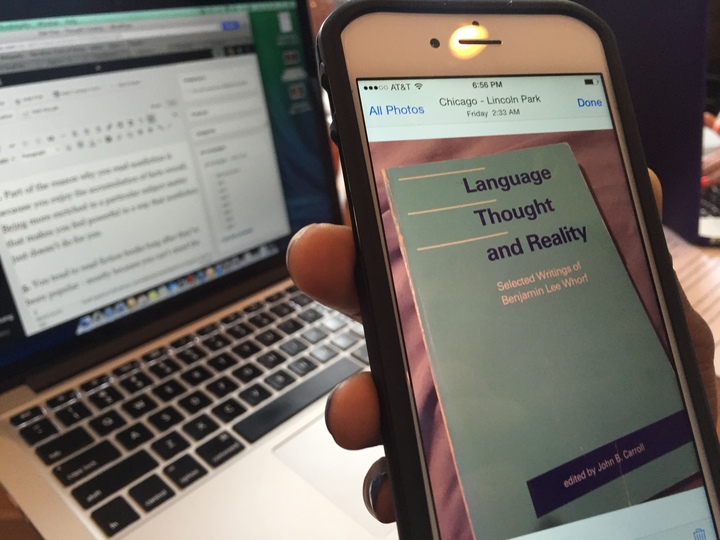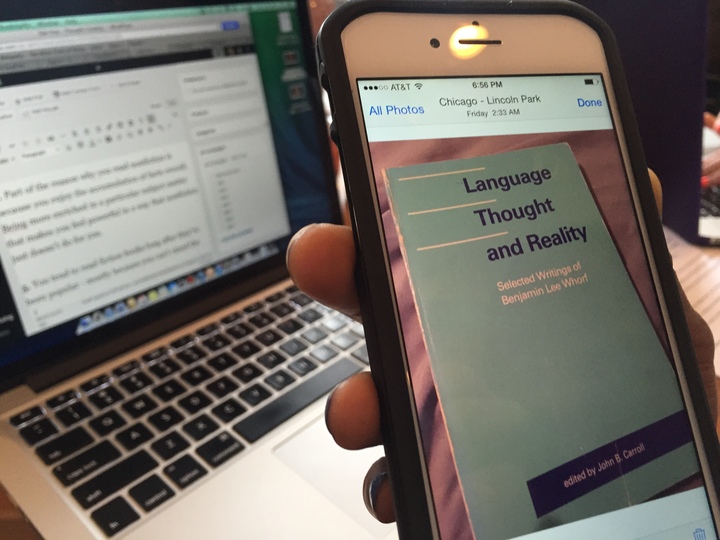
14 Things Only People Who Prefer Nonfiction Books Understand
“One of the paradoxes of writing is that when you write nonfiction everyone tries to prove that it’s wrong, and when you publish fiction, everyone tries to see the truth in it.”

1. You understand that truth and attempts to discover it – through the expression of nonfiction – is often an ingenious and creative process. While fiction sometimes gets the credit for being more “imaginative” than nonfiction, you hold firmly to the belief that truth is stranger than fiction.
2. You think of yourself as prizing “enlightenment,” over “entertainment.” It’s not that fiction books aren’t enlightening or nonfiction isn’t entertaining, it’s just that you prefer the idea of being educated on a specific topic in a direct way.
3. In some ways, you don’t like the predictability of a lot of fiction. Hero wins, villain loses, the difficult love always ends up together in the end, etc. While the possibilities really ought to be endless with fiction, nonfiction always seems to be more uncertain…in a good way.
4. Part of the reason why you read nonfiction is because you enjoy the accumulation of facts overall. Being more enriched in a particular subject matter that makes you feel powerful in a way that nonfiction just doesn’t do for you.
5. You tend to read fiction books long after they’ve been popular – mostly because you can’t stand the circus that usually revolves around them. There’s something about reading the same thing that everybody is reading and at the same time as everybody else, that turns you off.
6. You enjoy the direct application that you can make from the nonfiction genre. While fiction tends to stir you in terms of your emotional response, nonfiction tends to motivate you to make practical changes either to your thinking process or to a worldview that might have affected you in some shape or form.
7. You tend to think, rightly or wrongly, that nonfiction simply makes you smarter because it expands your understanding of a real-world concept. Even when you maintain your skepticism, you become aware of an additional viewpoint of the world that you might have not known before.
8. Although both nonfiction and fiction bring out the darkness and sadness of life, you find that the reality of nonfiction is not worse than fiction simply because it is true. But rather because of it, you are more inclined to be okay with the ugliness of life because it is simply a part of existence.
9. Because you often accumulate random facts about the world around you, you can make connections more easily between two seemingly disconnected events or subjects. And for all intents and purposes, it makes the conversations you have with people much more interesting.
10. You are always in a state of re-evaluating and re-assessing what you believe in. Because reading nonfiction – at least when you read a breadth of it – exposes you to a wide variety of arguments that sometimes causes you to modify your attitudes towards things.
11. Your ability to hold contradictory ideas is confusing to a lot of people. But to you, it improves your ability to perceive the world overall, and causes you to constantly be dissatisfied with your intellect. The consequence is positive though – you remain forever curious.
12. The way you see it, nonfiction is more challenging than fiction. Because while fiction asks you to think of things through the author’s eyes – nonfiction demands a change to your own eyes. This is a far more difficult task.
13. Fiction is your true pastime when it comes to reading. Your engagement with nonfiction is almost always intentional and enhancing. You treat it like you’re being taught in a classroom, and you find yourself researching and doing mental assignments on the subject matter that you’re currently involved with.
14. When it’s all said and done – preferring nonfiction makes you feel like more of a student of the world – trying to observe and make sense of everything around you. Indeed, people love fiction because they try to see their truth. But in nonfiction, the task is a journey of constantly seeking the truth. ![]()











